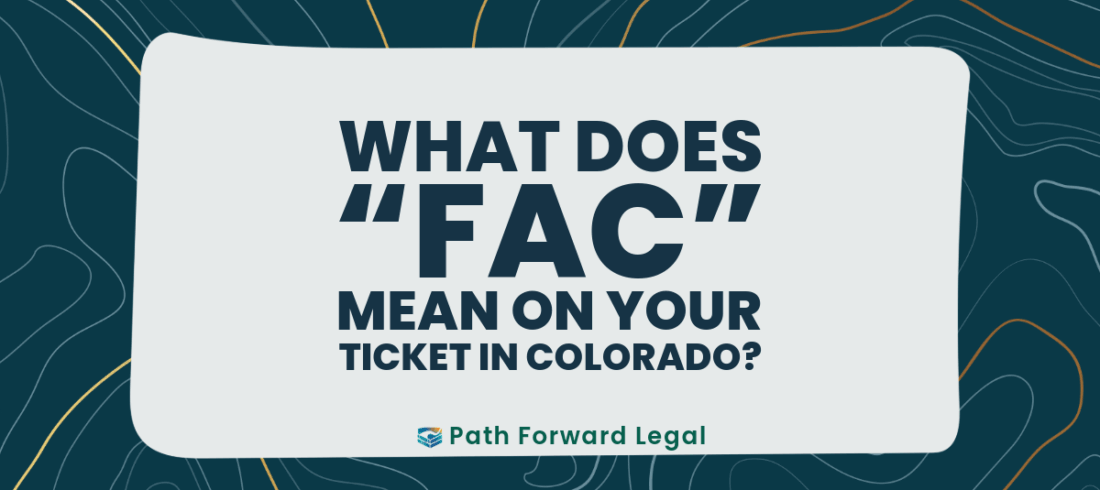If you have a court date coming up—especially in places like Castle Rock, Parker, or Denver—you might be wondering what to wear. The old advice used to be something like “dress like you’re going to church or Sunday dinner at grandma’s.” While there’s still some truth in that, times have changed. Today, the most important thing is showing up—on time, sober, and respectful. You don’t need a suit, and you definitely don’t need to buy new clothes.
Still, it’s helpful to think about what message your appearance sends when you walk into a courtroom. Below, we’ll walk through some practical guidelines for court attire and common mistakes to avoid.
First Things First: Be on time
Before we talk about clothes, here’s the most critical point: being on time matters more than your outfit. The judge will care much more about whether you showed up at 8:30 a.m. sharp than whether you wore khakis or jeans. If getting out the door means going in what you were wearing the night before—do it. You can’t make a good impression if you’re not there.
What Not to Wear to Court
Here are the most common clothing mistakes that can give off the wrong impression:
- Visible underwear or sagging pants
- Graphics with potentially offensive language or images
- Bulky jewelry or other accessories that security might flag as a weapon
You don’t have to dress like a lawyer, but your clothes should show the court that you respect the process and take it seriously.
Our most practical advice is more about going through security: plan to be able to take off all your jewelry, watch, and belt before going through the metal detector. Denver also requires you to take off your jacket, even if it’s part of your outfit. You don’t want to be late for court because you’re gathering your items and getting dressed again after a long security line.
General Rule: Don’t let your clothes be the story
The goal of dressing for court is not to stand out. You don’t want your outfit to be what people remember. Aim for neat, respectful, and low-key. Think of it this way: you’re not dressing to impress—you’re dressing not to distract.
Real Talk: If you can, dress conservatively
We want to be inclusive and non-judgmental in our recommendations for what to wear, which is why you don’t see us giving a style guide for “men” and “women.” We would like to think that judges and prosecutors are always as welcoming as we are when it comes to first impressions.
If you are concerned about giving the wrong impression, chances are that whatever outfit you pick will be perfect for court. Just reading this article shows that you care about your appearance and presenting yourself well in court.
If you want a little more structure, here are some specific suggestions:
- Tops: Polo shirts, button-ups, plain blouses, or clean T-shirts. Avoid tank tops, crop tops, or anything that shows undergarments. More conservative judges prefer shoulders to be covered.
- Bottoms: Jeans, slacks, longer skirts, or dresses are fine. Skip short-shorts or what people call “Daisy Dukes.”
- Shoes: Sneakers or closed-toe shoes are ideal. Rarely, security prohibits steel-toed boots. If you have the option to chose something else, do.
- Accessories: Leave big jewelry, chains, or belts at home if possible—they’ll just slow you down at the security entrance.
- Logos and messages: Avoid clothing with loud graphics, slogans, or anything that could seem controversial or offensive. A plain shirt beats a “420” graphic tee every time.
You Don’t Have to Spend a Dime
We’ve had many clients ask if they need to go shopping before court. The answer is no. You don’t have to spend a cent to dress appropriately. Clean, neat, and respectful is the goal. Judges know you’re not there for a fashion show. They’re much more interested in your behavior, your attitude, and whether you’re following the rules of the court.
Final Thoughts
At Path Forward Legal, we understand how overwhelming a court appearance can be—whether you’re in Arapahoe County or downtown Denver. You’re trying to balance fear, logistics, and uncertainty, and the last thing you need is extra pressure about what to wear.
Just remember:
- Show up on time.
- Let your attorney—not your outfit—do the talking.
If you have questions about what to expect at your hearing—or anything else related to your case—we’re here to help. Request a free consultation or Call us: (303) 535-5820




